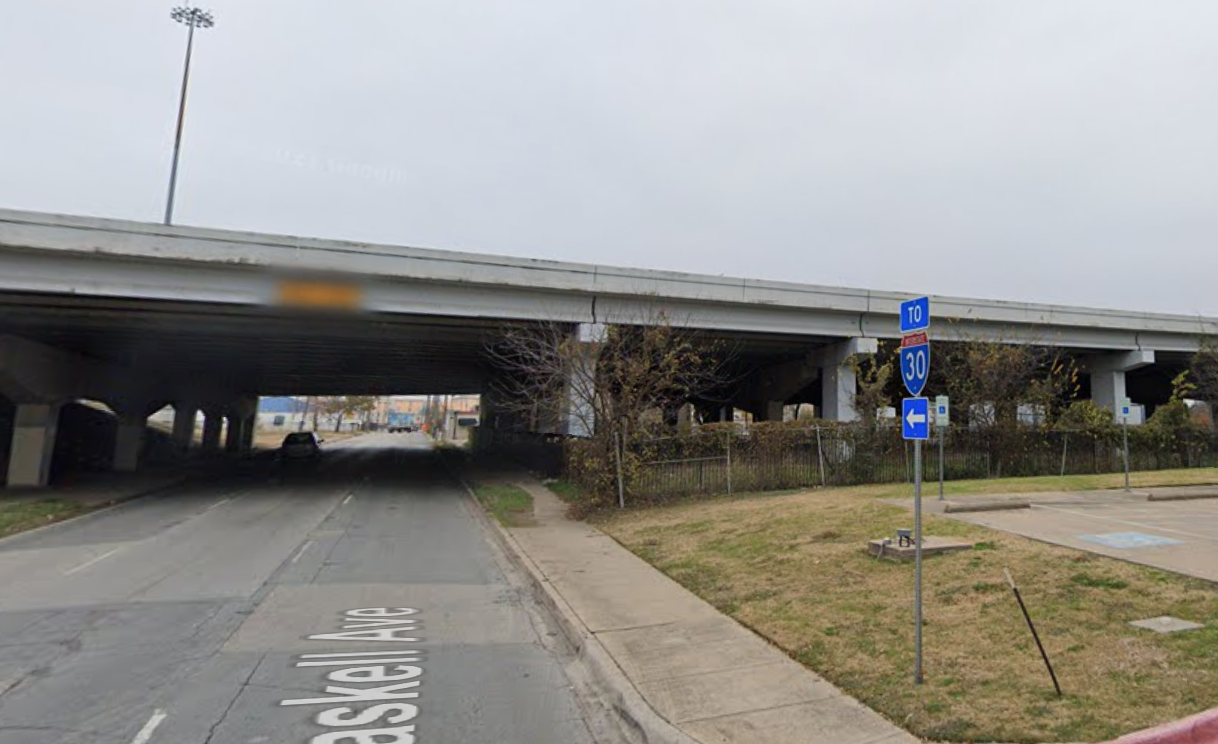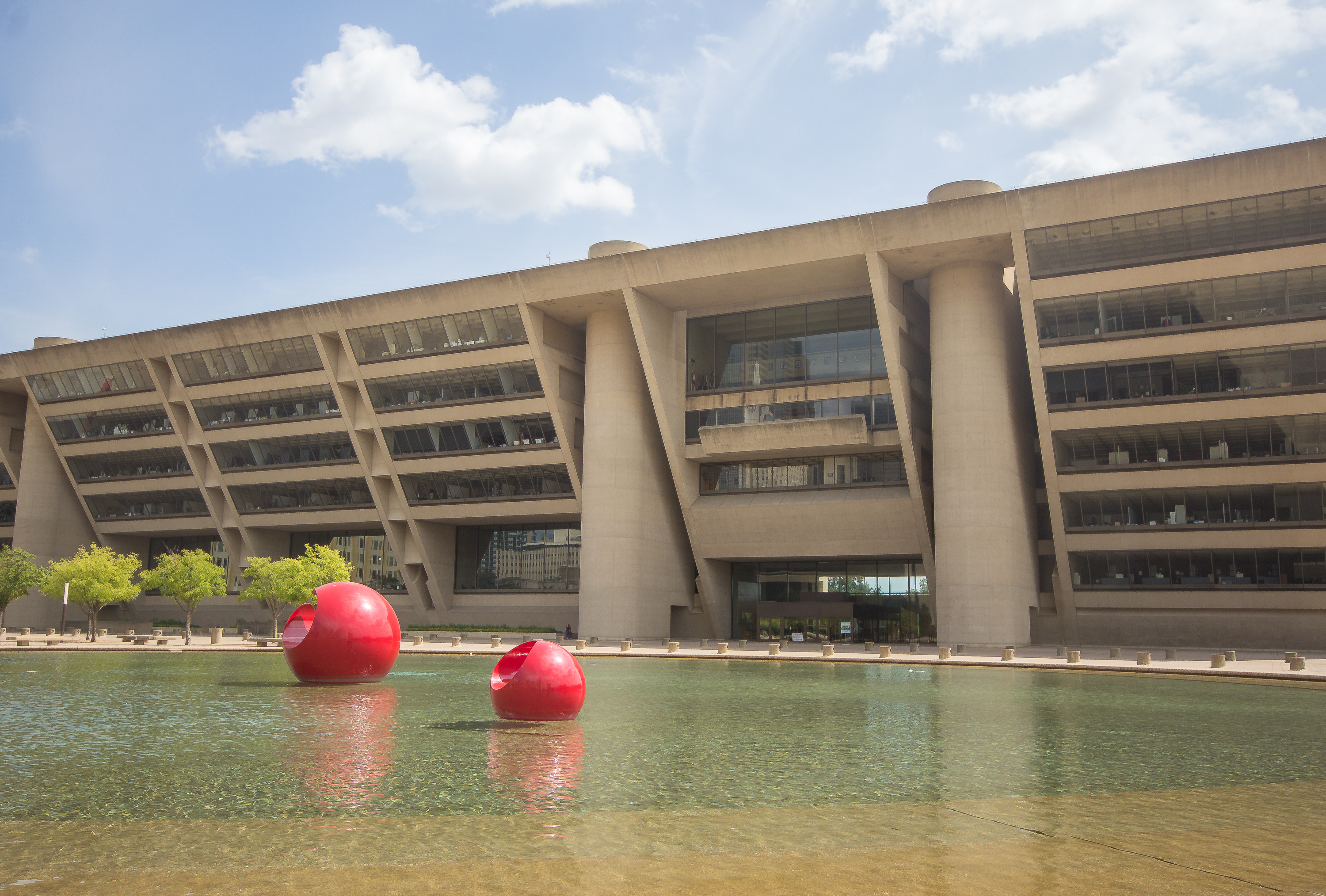Today, June 1, is the last day for you to vote early in the Dallas City Council runoffs. If you don’t make it to the polls today by 7 p.m., you’ll have to wait until Election Day on Saturday, June 5. Chances are a good chunk of you are eligible.
Districts 2, 4, 7, 11, 13, and 14 are all up for grabs. That’s about half the city. Check here if you need to run to your nearest polling place. It took me a little over a minute to vote last week. (And you can cast a ballot at any polling place in the city.)
Through Monday, about 20,566 people had cast a ballot in the Dallas’ municipal runoffs. The county hasn’t provided a total number of eligible voters for these races, but that number is poor.
Which is a shame, as it often is, because the next City Council will be responsible for some significant policy. This includes immediate matters like federal stimulus spending but also more complicated things like transportation projects that carry billion-plus dollar price tags.
The last City Council was in suspended animation. They did a lot of work, but that work was largely getting through, and out of, the COVID-19 pandemic. The longer-term work is coming now, the type of stuff that shapes how this city develops over the next 50 years.
Below are five of the more important things that will likely come before this next City Council. Let’s go.
Federal Spending.
This is probably coming up early. The feds are giving Dallas $377 million in Biden Bucks. The stimulus last year came with a 9-month deadline and some strict usage requirements. This round, the city will have until 2024 to figure out how to best use all that money. It can be spent on a lot of things—seems like “respond to COVID-19 or its economic impacts” is an argument for plenty—and the City Council will be directing staff on where it goes.
Another use: “invest in water, sewer, and broadband infrastructure.” A quarter of Dallas children don’t have access to the internet. Some communities don’t have running water. Some neighborhoods in southern Dallas aren’t connected to the city’s wastewater infrastructure. This is a huge opportunity, and this council will be the ultimate decider.
Transportation.
The city’s transit partners have been hard at work. Dallas Area Rapid Transit has about a year to finish plans for its downtown subway, a $1.7 billion investment extending from Victory Park south into downtown and east into Deep Ellum. Deep Ellum’s leadership didn’t like how it emerged above ground once it got into the neighborhood. You know who told DART to think through alternate designs? Well, city staff. But council directed them.
Meanwhile, the Texas Department of Transportation is redoing the Interstate 30 Canyon near downtown, which is pretty much baked and getting funding. What hasn’t finished baking? The miles of Interstate 30 east of downtown, through Fair Park and East Dallas, where the state hopes to bury it like Central Expressway to better connect these neighborhoods. Remember, this highway demolished neighborhoods. Just look at the street grid. This is a chance to reconnect.
The council’s job is partly to establish priorities, direct the state’s transportation agency to deliver on its promises, and hold it accountable if it goes too far.
Also coming? What to do about Interstate 345, the 1.3-mile elevated highway that acts as a giant concrete barrier between downtown and Deep Ellum as it shuttles cars to points north and south. On June 22, TxDOT will present multiple options for the highway’s future during a public meeting. Broken record time: The Dallas City Council is the body that will need to coalesce and direct its own priority for the highway’s future, then fight for it.
These projects all have enormous implications for our city. Interstate 30 is currently an elevated mess that really screwed up so many neighborhoods. Think about standing on the north side of Interstate 30 near Fair Park. Can you imagine seeing Fair Park from the north side of the highway?

(Oh, and also, they’ll decide on whether to allow scooters back. Bring back the scooters!)
Economic development.
Last week, the current council approved an economic development plan that creates an entity within City Hall that can legally buy and market real estate to attract new businesses. The idea is to use this as a mechanism to fuel development in southern Dallas. You know what entity has been historically awful at fueling development in southern Dallas? City Hall.
The Dallas City Council is like a board of directors. It will need to follow the efforts of City Hall closely, ask the right questions, and ensure that equitable, sustainable development is coming out of this effort. Most of the sitting southern Dallas council members seem thrilled with the idea. That’s encouraging, but it will be on that very body to make sure the city drives the results home.
Zoning and code amendments.
First, parking. The city is currently researching amending its requirements for how many parking spots a development must provide. This includes how many spots are required for churches and bingo halls and bars. It also includes things that have shaped how Dallas has developed and who can afford to live where.
Did you know that multifamily apartments must provide one parking space for every bedroom? That’s a lot of parking. If you live in an apartment with your 4-year-old, guess what? That child gets a parking spot! That’s a lot of money for the developer. And where do those costs trickle down to? The renter. It’s a big reason why so many apartments are higher priced when we need many more units for middle-wage earners. This council will likely take up the matter, since an obscure-to-the-public zoning committee has been researching the matter for the past two years. (More to come on this.)
The city is also poised to pass an updated land use policy, called forwardDallas. (The capitalization is the city’s.) That will govern how Dallas grows over the next decades. When you let the market decide what parking is necessary—instead of archaic city codes that have been on the books since 1965—you might just see some innovation. But none of that really matters if the zoning doesn’t change. This might freak out some single-family neighborhoods, but who was ever harmed by a quadplex?
Meanwhile, Shingle Mountain in southern Dallas is still alive. It just looks different. The six-story pile of shingles was allowed to grow because the city didn’t pay attention to what the landowner was doing until it was too late and it was six stories tall and the city had to take everyone involved to court.
Well, a woman named Marsha Jackson lives next to that. And despite the pile getting finally hauled away, that land next to her home—literally, like imagine this mess where your neighbor’s home is right now—is still zoned for industrial research. Two weeks ago, that meant she lived next to a truck yard for a week, until the city ran them off. But they’ll be back, because the zoning hasn’t changed.
Dallas must analyze its zoning in southern and West Dallas to protect residents who live among this industry. It’s not just Marsha who has to deal with this.
Redistricting.
The last Census in 2010 wound up morphing the North Oak Cliff council district into one district instead of two. What will the new census demographics dictate, and what will the new districts look like?
It’s all going to be in front of the next council.
This is why it’s important you vote in these races. The pandemic is on its way out. The future of our city is now going to be in front of this body. If you live in these districts, get educated about the candidates and cast a ballot. Election Day is June 5.
Enjoy this? You could have read a version of it two days ago. Sign up for the D Brief newsletter right here.





